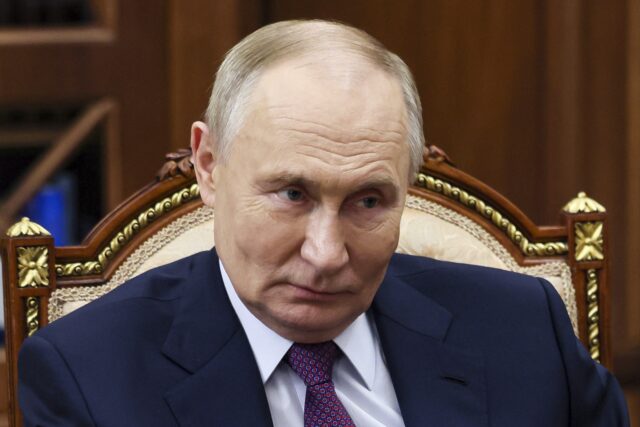Russia’s upper house of parliament has endorsed a bill banning adoption of Russian children by citizens of countries where gender transitioning is legal
Russian lawmakers endorse bill to ban adoptions by gender-transition countriesThe Associated PressMOSCOW
MOSCOW (AP) — Russia’s upper house of parliament on Wednesday endorsed a bill banning adoption of Russian children by citizens of countries where gender transitioning is legal.
The Federation Council also approved bills that outlaw the spread of material that encourages people not to have children.
The bills, which have previously been approved by the lower house, will now go to President Vladimir Putin for signing into law. They follow a series of laws that have suppressed sexual minorities and bolstered longstanding conventional values.
The lower house speaker, Vyacheslav Volodin, who was among the new bill’s authors, has noted that “it is extremely important to eliminate possible dangers in the form of gender reassignment that adopted children may face in these countries.”
The adoption ban would apply to at least 15 countries, most of them in Europe but including Australia, Argentina and Canada. Adoption of Russian children by U.S. citizens was banned in 2012.
Other bills approved by lawmakers on Wednesday outlaw what is described as propaganda for remaining child-free and impose fines of up to 5 million rubles (about $50,000). Its proponents contended that public arguments against having children are part of purported Western efforts to weaken Russia by encouraging population decline.
Putin and other top officials in recent years have increasingly called for observing so-called traditional values as a counter to Western liberalism. As Russia’s population declines, Putin has made statements advocating large families and last year urged women to have as many as eight children.
Russia last year banned gender-transition medical procedures and its Supreme Court declared the LGBTQ+ “movement” to be extremist.
In 2022, Putin signed a law prohibiting the distribution of LGBTQ+ information to people of all ages, expanding a ban issued in 2013 on disseminating the material to minors.

COMMENTS
Please let us know if you're having issues with commenting.